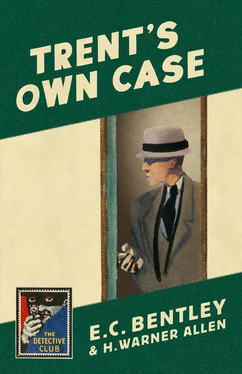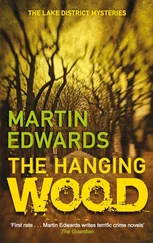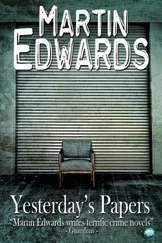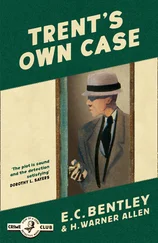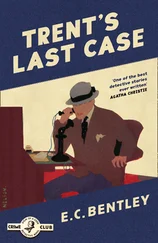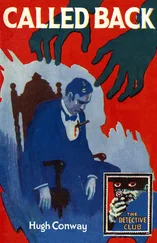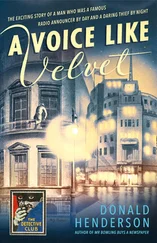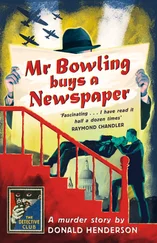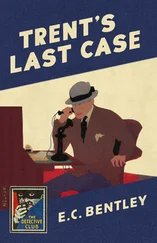DEATH OF A PHILANTHROPIST Contents Cover Title Page Copyright Introduction I. SOUTHWARD BOUND II. A LITTLE SHEET OF PAPER III. DEATH OF A PHILANTHROPIST IV. NOT HARD OF HEARING V. TRENT IS TAKEN ABACK VI. AN ARREST HAS BEEN MADE VII. ON A PLATE WITH PARSLEY ROUND IT VIII. THE WHITE FLOWER OF A BLAMELESS LIFE IX. THE TIARA OF MEGABYZUS X. A MATTER OF TEMPERAMENTS XI. IMPASSE XII. THE COUNT EXPLAINS XIII. FELIX POUBELLE 1884 XIV. GENIUS MUST LIVE XV. EUNICE MAKES A CLEAN BREAST OF IT XVI. THE WHISPERED WORD XVII. FINE BODY OF MEN XVIII. INFORMATION RECEIVED XIX. RESURRECTION XX. A GOLF MATCH XXI. AUNT JUDITH KNITS The Detective Story Club About the Publisher
TO Chief Inspector Gideon Bligh’s experienced eye the scene explained itself—up to a point. That able officer stood in the centre of the late James Randolph’s bedroom on the upper floor of No. 5, Newbury Place, known to a simpler age as Newbury Mews. This was a small enclosure, approached by archways from the streets at either end of it, in one of the purlieus of Park Lane; No. 5 being the nearest to Bullingdon Street of the neat row of stables and coach-houses, converted now to the uses of well-to-do human habitation.
Mr Bligh stroked with one great hand his prematurely bald cranium while he considered the position. His appearance always commanded respect. He was tall and loosely built. His clean-shaven face, with its massive, vigorous features, wore habitually a stern expression. His skin, slightly tanned, was otherwise colourless.
In the doorway stood a police-sergeant, closely attentive to the proceedings of the man from headquarters. He had already put his superior in possession of the facts learned since the police had been called to the place by telephone, just after midnight; he had mentioned the points of interest so far disclosed in examination of the bedroom, and what he regarded as ‘a queer piece of evidence’ in the sitting-room below it. The time now was half past eight in the morning.
The body had been left by the police-surgeon as he had found it, lying prone before the dressing-table. The old man had been shot from behind and killed instantly, the bullet entering below the left shoulder-blade. He had been at the time—whether it mattered or not—in a peculiarly defenceless posture; for, being fully dressed in day clothes, he had been in the act of taking off his coat. The left sleeve was half-way down the arm, and the right had just slipped from the shoulder, so that the arms were for the moment pinioned. Clearly he had not believed himself to be in danger of any sort of attack. He had placed the contents of his pockets on the table before the looking-glass. Assuming him to have been still facing the table at the moment of his death, the murderer would have been standing at or near the doorway of the room—possibly outside the open door.
The room, kept in a state of speckless neatness, was somewhat scantily furnished; but Inspector Bligh knew enough of such matters to perceive that the few movables were articles of value—probably, seeing what had been the dead man’s reputation as a connoisseur, of great value.
Randolph, it was evident, had been about to dress for dinner. His evening clothes were neatly set out on two chairs. What he had carried in his pockets lay in a small disorderly heap before the looking-glass—a case containing notes to the value of seven pounds; a handful of coins; a watch with its slender chain of gold and platinum links; an eye-glass case; a leather key-case; a few letters, being ordinary business communications; a pencil; and, incongruous among these other articles, a champagne cork.
The inspector examined this last with some interest. Certainly it was an odd thing for Randolph to have been carrying, as appearances suggested, on his person. Had it been used, perhaps, to sheathe the end of some sharp-pointed object? The officer satisfied himself that this was not so. The cork was flawless and compact, to all appearances in just that condition in which it had left the bottle; it was branded ‘Felix Poubelle 1884.’ The inspector rubbed his chin as he considered these facts; but he found himself unable to attach to them any significance at all.
Close to this pile of personal oddments lay the separated parts of a safety razor, lacking a blade. The other materials for shaving, as Mr Bligh soon ascertained, lay among the articles on a shelf in the bathroom adjoining. They had not been recently used. On the same shelf lay the little case belonging to the razor, and within it were two new blades in their unbroken envelopes. Curious, then, was the presence of the razor alone, unscrewed and bladeless, on the dressing-table.
The inspector turned now to a small chest of drawers against the wall hard by the door opening from the passage. On the embroidered blue linen ‘runner’ covering its top stood a water-bottle, half-empty, and a tumbler from which, it appeared, water had been drunk. A glance showed that the inevitable fingerprints had been left on both of these—probably Randolph’s own prints, the inspector reflected sadly. Still, you couldn’t be sure. Murderers were not—so ran Mr Bligh’s train of thought—like criminals as a rule. All the regular crooks knew about fingerprints; and none of them were deliberate killers. Murderers were apt to be quite respectable; at least to know nothing of the ways of criminals or of the police either. But again, you couldn’t be sure.
Leaving this point for later investigation, he turned next to the fireplace. Randolph, the police had learned, had always a good coal fire burning in this during the cold weather. Yesterday’s fire had long burnt itself out, and the inspector raked through the ashes with the small poker that lay to hand. Nothing, however, rewarded his search.
His eye travelled now over the floor of the room, and came to rest where, beneath the window, there lay a quantity of crumpled brown paper and tangled string, marring the extreme tidiness of the surroundings. A moment’s examination showed that several packets, fastened with sealed cord, had been opened, their contents removed, and the covers flung down carelessly. From the appearance of these relics Mr Bligh judged them to have been slim parcels containing letters or documents of some kind, each parcel conspicously marked with a number in soft black pencil. The string in each case, the seals being unbroken, had been cut with an instrument of peculiar sharpness, as the perfectly clean division of the strands made plain.
The inspector’s eyes narrowed as his deft fingers smoothed these crumpled wrappings into their original shapes—shells emptied, now, of so much perhaps explosive matter. Had Randolph been shot for the sake of what was in these packets? Was that the murderer’s intended spoil? Letters, or papers? Not money or valuables, certainly; enough of those had been left on the dressing-table. And what kind of letters or papers were worth the taking of a man’s life? Apart from secret treaties and other materials of thrilling fiction, which Mr Bligh did not take very seriously, he knew of one kind which had, not seldom, been considered worth that price of guilt and peril.
But surely old James Randolph, that busy architect of good works, could have had no interest in blackmail. Scotland Yard knew of some little peculiarities of his—it knows so much about so many public characters, little as they dream of it. But there was nothing savouring of illegality. Besides, the man had been for years immensely wealthy, and the sources of his wealth were no secret. There could have been no temptation to one of the most sordid of crimes.
Setting aside this difficulty for the time, Mr Bligh poked about diligently among the brown paper and string; and on the carpet beneath them he soon discovered a safety-razor blade. His lips pursed themselves in a silent whistle. Here, no doubt, was the instrument chosen hastily for the opening of the packets—a blade taken from the razor where it had been placed in readiness for use. Bending down, the inspector noted that this was a blade of the make that went with the unscrewed razor on the dressing-table; a duplicate of the two in unopened envelopes in the razor-case.
Читать дальше
